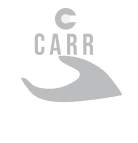Addiction recovery is an arduous process that can be fraught with both success and failure. After receiving inpatient care, many people are still susceptible. Finding a suitable environment to bridge the gap between rigorous treatment and independent living becomes vital during this time due to the high risk of relapse. A key part of preventing relapse is the provision of crucial skills and methods for long-term sobriety by sober living homes at Zen Mountain Sober Living in Aurora, Colorado.
The Importance of Relapse Prevention
One of the most discouraging aspects of getting better is relapsing. The occurrence of a relapse should not be viewed as a sign of failure, but rather as an indicator that further help, and tactics are required. An essential part of addiction treatment is teaching people the skills they need to avoid relapsing after they’ve made progress toward sobriety.
After finishing inpatient treatment or as an alternative to it, sober living homes provide residents with a secure and supportive environment in which to continue their recovery. The major objective of these residences is to equip residents with the knowledge and methods they’ll need to establish a lifelong commitment to sobriety.
The Role of Sober Living Homes
Zen Mountain House is a type of sober living community that provides recovering addicts with a safe, sober, and accountable place to live. How they help reduce the risk of recurrence is as follows:
Community Support
Sense of Belonging

The sense of community that can be found in sober living facilities is crucial. There is a strong sense of community since people have similar experiences and goals. In times of weakness, having this kind of support is priceless.
Accountability
Residents’ behaviors are scrutinized, which promotes a culture of responsibility. Responsibility includes things like showing up to house meetings, playing by the rules, and making positive contributions to the group as a whole.
Structured Environment Routine and Stability
The residents of a sober living home follow a set schedule. Reducing the degree of volatility and unpredictability that existed in their lives while they were actively using is crucial for people in early recovery.
Rules and Guidelines
Most homes have established norms and regulations that all members must adhere to. Restrictions on visitors who would be a danger to the residents’ sobriety are one example of the limitations that may be put in place.
Life Skills Development
Sustainable Behavior
Essential life skills are emphasized in sober living facilities. The residents are taught how to budget their money, take care of their living quarters, and manage their time wisely.
Coping Mechanisms
Residents are provided with alternatives to substance use in the face of stress, anxiety, and other stressors. Techniques for calming anxiety and improving interpersonal interactions are included.
Relapse Prevention Education
Recognizing Triggers
Residents learn to recognize their own unique risk factors for recurrence. External (particular persons, locations, or situations) or internal (specific emotional states) triggers are both possible.
Coping Strategies
Tools and tactics for dealing with triggers and cravings are provided by sober living facilities. Positive coping skills are taught to residents, such as practicing mindfulness, meditating, and engaging in regular physical activity.
Peer Support and Accountability

Mutual Support
Peer support is emphasized in sober living facilities. Residents support one another, learn from one another, and set a good example for newcomers.
Accountability Partners
In many communities, members work together to keep tabs on each other’s progress through a system of mutual accountability. Using this system, people are more likely to stay on course and get assistance when they need it.
Zen Mountain House
A Beacon of Hope in Aurora, Colorado
Zen Mountain House is a women’s sober living home in the heart of South Aurora that is committed to the inhabitants’ health and recovery. This one-of-a-kind home has taken on a lively “tribal” vibe, resulting in a warm and inviting space.
A Nurturing Environment
Zen Mountain House is more than simply a residence; it is a network of women who support and encourage one another through the difficult process of addiction recovery. Residents will find a secure and supportive community in which to flourish.
Tools for Lasting Recovery
Relapse prevention resources available to Zen Mountain House residents include:
Structured Living: The house provides a regimented setting that fosters individual initiative and development. By providing a sturdy framework, this building aids locals in starting over.
Accountability: Residents are taught to take responsibility for their behavior and are held to their agreements, which is essential for maintaining sober.
Coping Strategies: Education on identifying triggers and developing skills for dealing with cravings are provided at Zen Mountain House. The program teaches residents how to stay sober no matter what comes their way.
Peer Support: The solidarity of Zen Mountain House residents is an invaluable resource. Community members encourage one another, learn from one another’s achievements and failures, and push one another to improve.
Holistic Well-being: The values of Zen Mountain House complete health above anything else. To ensure that all elements of the residents’ lives are taken care of, they have access to resources for managing co-occurring mental health concerns and trauma.
Conclusion
Addiction rehabilitation includes preventing relapse as an essential step. Zen Mountain House in Aurora, Colorado, is an example of a sober living facility that equips residents with the basics for long-term abstinence from drugs and alcohol. The residents of these homes can find a feeling of community, improve their employability, and learn to deal with triggers and cravings in a safe and nurturing setting. People in recovery can take steps toward a more fulfilling life free of substance use if they are provided with the tools they need to do so.




